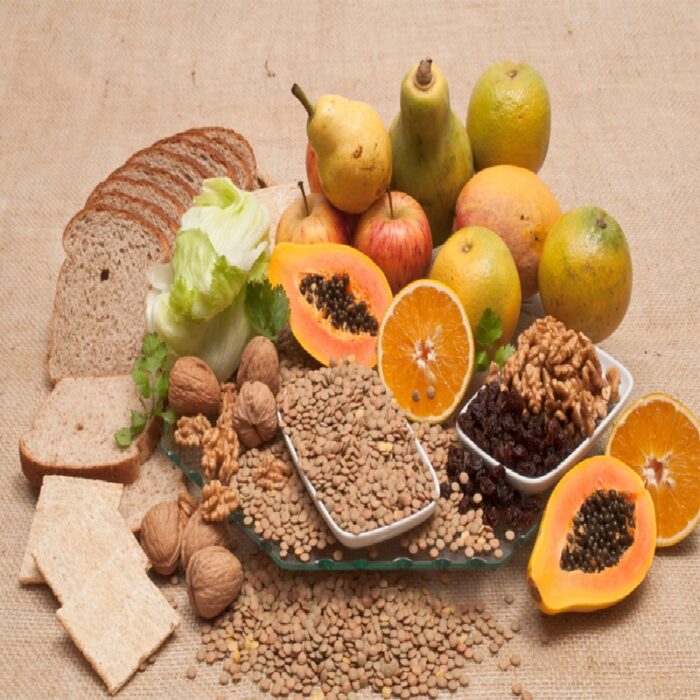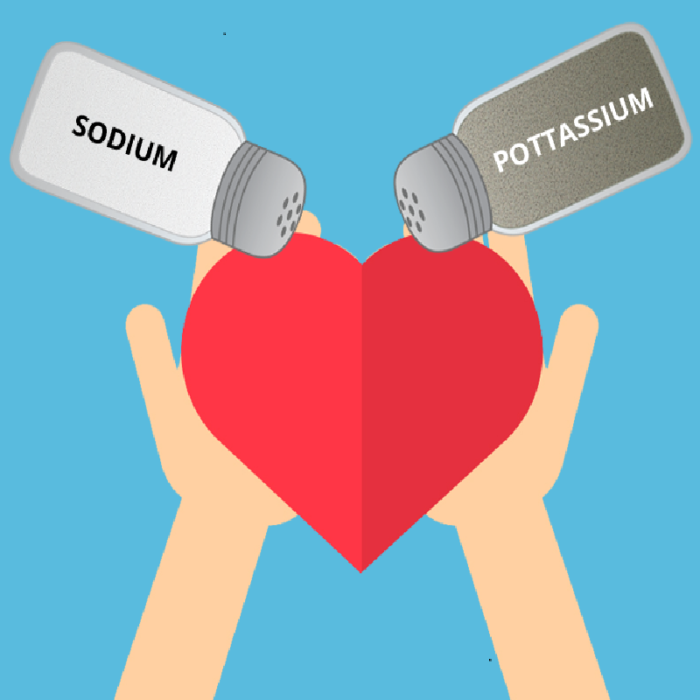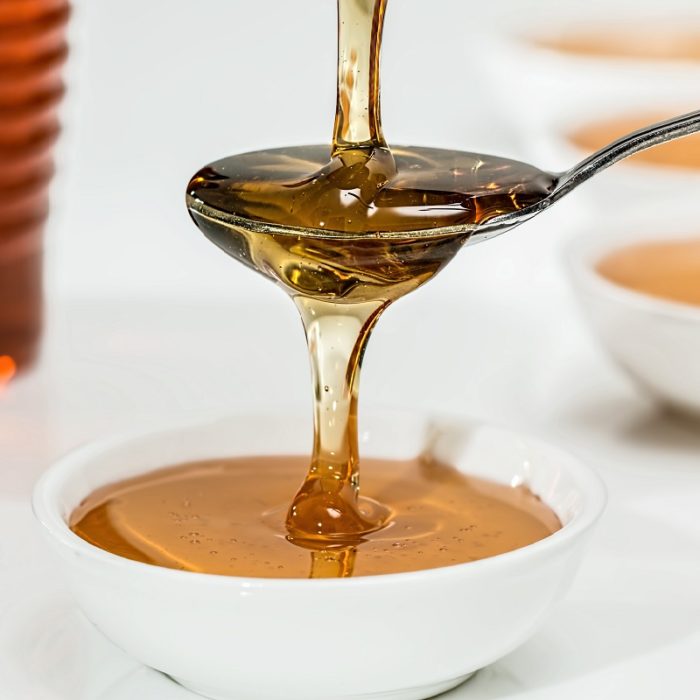Top 10 Benefits Of Dark Chocolate

If you’ve dreamt of eating chocolate every day, now you have an excuse — or ten!
Dark chocolate is loaded with nutrients and is an excellent source of antioxidants. Of course, it tastes sinfully sweet, but indulging in it doesn’t have to make you feel guilty anymore!
Studies state that a moderate intake of dark chocolate may help with weight loss. It may reduce the digestion and absorption of fats and increase satiety.
Dark chocolate may also have benefits for the skin and heart, among others. It is a source of powerful antioxidants and other important nutrients. It contains 50-90% cocoa solids, cocoa butter, and sugar. It may contain traces of butter too – though unlikely in most cases.
In this post, we will explore in detail what research tells us about dark chocolate. We will also look at the possible side effects that eating too much dark chocolate may cause.
How Does Dark Chocolate Benefit You?
The cocoa flavanols in dark chocolate contribute to most of its benefits. These flavanols have antioxidant effects that promote heart health, help fight cancer, and boost brain function. Dark chocolate may also aid weight loss.
1. May Boost Heart Health
Dark chocolate antioxidants may cut heart disease risk by preventing oxidation, lowering bad cholesterol levels, and elevating good cholesterol levels.
Habitual chocolate intake can lower the risk of coronary heart disease. Studies have suggested that dark chocolate may have more benefits than milk chocolate. One major reason for this effect could be the flavonoids in dark chocolate.
Some sources claim that dark chocolate may promote the production of nitric oxide, which relaxes the blood vessels and enhances blood flow. However, we need more research to establish this.
There is no evidence that those concerned with cardiovascular health must avoid dark chocolate (or chocolate, in general).
Studies show that eating dark chocolate more than five times a week was associated with a 57% lower risk of coronary heart disease.
We know that dark chocolate is made of cocoa. As per a Japanese study, the polyphenols in cocoa powder may lower LDL (the bad cholesterol), elevate HDL (the good cholesterol), and suppress oxidized LDL.
It is not LDL but oxidized LDL that is a problem. The antioxidants in cocoa may prevent the LDL from getting oxidized.
2. May Protect Your Skin
The flavanols in dark chocolate can protect the skin against sun damage.
Studies show that dietary flavanols from cocoa offer photoprotection and improve dermal blood circulation.
This effect can be attributed to the antioxidants (especially flavanols) in dark chocolate.
3. May Aid Weight Loss
Moderate intake of dark chocolate may increase satiety and may lead to weight loss.
Research suggests that dark chocolate may have a role to play in weight loss. It may decrease the expression of genes involved in fatty acid synthesis. This reduces the digestion and absorption of fats and carbs, thereby increasing satiety.
Consumption of dark chocolate could also be useful in the reduction of weight circumference in normal weight obese women (a condition that involves excess body fat with a normal body mass index).
However, moderation is key. Just 100 grams of dark chocolate contains about 600 calories. Hence, do not have more than one cube of dark chocolate in a day.
4. May Promote Brain Function
The flavonols in dark chocolate may elevate mood and improve cognitive health in the elderly.
In a study conducted on five healthy subjects, intake of dark chocolate (with 70% cocoa content) was found to improve behavioral and brain health. Further research is in progress, however, to elaborate on these mechanisms.
In a second study conducted by the same team, dark chocolate was found to improve neural signaling and sensory perception.
Regular intake of cocoa flavanols may also be effective in improving cognitive health in the elderly with mild mental impairment.
Dark chocolate also promotes mood and may alleviate emotional stress. However, we need further research to understand the mechanisms involved.
Dark chocolate also contains a compound called epicatechin, which was found to reduce brain damage in the eventuality of a stroke. But not all dark chocolate is created equal. Hence, ensure you go through the list of ingredients.
5. Might Aid Cancer Prevention
Rat studies highlight a possible link between dark chocolate intake and colon cancer prevention. A diet including dark chocolate was found to reduce cell proliferation and inflammation.
Daily intake of small amounts of flavanols from dark chocolate and other sources may be a natural approach to potentially prevent colon cancer. However, we need more research in this regard.
According to the American Cancer Society, the flavanols in cocoa beans (dark chocolate) may help reduce damage to cells. But as per the report, the results don’t state if the anticancer effects could be attributed to dark chocolate, or if it’s the flavanols alone, which could be found in other foods as well.
Dark chocolate cocoa also contains high concentrations of catechins and procyanidins that may have a beneficial effect against oxidative stress and chronic inflammation, which both are risk factors for cancer.
6. May Improve Hair Health
Dark chocolate is rich in cocoa. This cocoa contains proanthocyanidins, compounds that were known to promote hair growth in animal studies.
In mice, proanthocyanidins were found to induce the anagen phase of hair growth. Anagen is the active growth phase of hair follicles where the hair root divides rapidly, adding to the hair shaft.
More research is warranted to understand if dark chocolate can actually have any impact on hair health.
We have seen some of the nutrients that make dark chocolate beneficial to human health. In the following section, we will further explore its nutritional profile.
7. May Aid Diabetes Treatment
Consuming dark chocolate may lower blood sugar levels, as per some studies.
It is possible that the cocoa polyphenols in dark chocolate can directly influence insulin resistance and reduce diabetes risk. They may induce the generation of pancreatic beta-cells and stimulate insulin secretion, thereby lowering blood sugar levels. More studies need to be performed to further analyze the anti-diabetic effects of dark chocolate.
However, reports hint that dark chocolate may have some adverse effects (although only rarely) on people who have diabetes. But this is yet to be validated by strong research.
8. May Enhance Vision
In a study, dark chocolate exhibited a better ability to improve visual acuity than its white counterpart. This effect was only temporary (for about two hours), however. The long-term effects of dark chocolate on vision health need further research.
9. May Promote Gut Health
The good microbes in the gut, namely Bifidobacterium and lactic acid bacteria, ferment dark chocolate and produce anti-inflammatory compounds.
In another study, the consumption of foods rich in cocoa flavanols could significantly improve the growth of beneficial gut bacteria. Although further research is required, this is a promising finding.
10. Dark Chocolate Can Help Prevent Depression
One of the components found in dark chocolate is theobromine. Theobromine is structurally quite similar to caffeine, its sister chemical.
Theobromine, when consumed in larger amounts, can cause a dip in blood pressure, excitability and give energy. This energy can be followed by a crash, leading some critics to tout chocolate as a dangerous addictive substance.
Another chemical found in chocolate is anandamide. Anandamide is structurally similar to THC, but nowhere near as effective. Despite this, anandamide can still provide a mood- and energy-boost, without the addiction and cardiovascular damage that comes with other stimulating substances.
Yet another mood-boosting chemical in chocolate is phenethylamine, which is metabolized in your body into serotonin. Serotonin is one of the most important mood-regulating chemicals your body can produce. If you’re deficient in serotonin, supplementing with phenethylamine—even through chocolate—can help bring you back to baseline.
What Is The Nutritional Profile Of Dark Chocolate?
| CALORIE INFORMATION | ||
|---|---|---|
| Amounts Per Selected Serving | %DV | |
| Calories | 605(2533 kJ) | 30% |
| From Carbohydrate | 185(775 kJ) | |
| From Fat | 388(1624 kJ) | |
| From Protein | 31.5(132 kJ) | |
| From Alcohol | ~(0.0 kJ) | |
| CARBOHYDRATES | ||
| Amounts Per Selected Serving | %DV | |
| Total Carbohydrate | 46.3 g | 15% |
| Dietary Fiber | 11.0 g | 44% |
| Starch | ~ | |
| Sugars | 24.2 g | |
| FATS & FATTY ACIDS | ||
| Amounts Per Selected Serving | %DV | |
| Total Fat | 43.1 g | 66% |
| Saturated Fat | 24.7 g | 124% |
| Monounsaturated Fat | 12.9 g | |
| Polyunsaturated Fat | 1.3 g | |
| Total trans fatty acids | 0.0 g | |
| Total trans-monoenoic fatty acids | 0.0 g | |
| Total trans-polyenoic fatty acids | 0.0 g | |
| Total Omega-3 fatty acids | 34.3 mg | |
| Total Omega-6 fatty acids | 1230 mg | |
| PROTEIN & AMINO ACIDS | ||
| Amounts Per Selected Serving | %DV | |
| Protein | 7.9 g | 16% |
| VITAMINS | ||
| Amounts Per Selected Serving | %DV | |
| Vitamin A | 39.4 IU | 1% |
| Vitamin C | ~ | ~ |
| Vitamin D | ~ | ~ |
| Vitamin E (Alpha Tocopherol) | ~ | ~ |
| Vitamin K | 7.4 mcg | 9% |
| Thiamin | 0.0 mg | 2% |
| Riboflavin | 0.1 mg | 5% |
| Niacin | 1.1 mg | 5% |
| Vitamin B6 | 0.0 mg | 2% |
| Folate | ~ | ~ |
| Vitamin B12 | 0.3 mcg | 5% |
| Pantothenic Acid | 0.4 mg | 4% |
| Choline | ~ | |
| Betaine | ~ | |
| MINERALS | ||
| Amounts Per Selected Serving | %DV | |
| Calcium | 73.7 mg | 7% |
| Iron | 12.0 mg | 67% |
| Magnesium | 230 mg | 58% |
| Phosphorus | 311 mg | 31% |
| Potassium | 722 mg | 21% |
| Sodium | 20.2 mg | 1% |
| Zinc | 3.3 mg | 22% |
| Copper | 1.8 mg | 89% |
| Manganese | 2.0 mg | 98% |
| Selenium | 6.9 mcg | 10% |
| Fluoride | ~ |
*Values sourced from USDA, Chocolate, dark, 70-85% cacao solids
A bar of dark chocolate (100 grams) with 70-80% cocoa content contains about 600 calories. That is a lot, but obviously, you aren’t going to consume 100 grams of dark chocolate every day (we don’t recommend you do that either).
One ounce of dark chocolate (28 grams) contains about 3 grams of fiber, 27% DV of manganese, 25% DV of copper, 19% DV of iron, and 16% DV of magnesium.
The much-discussed goodness of dark chocolate comes from its cocoa content. Cocoa is replete with plant chemicals (called flavanols) that may protect the heart. It contains two to three times more flavanol-rich cocoa solids than its milk cousin.
The other important nutrients in dark chocolate include iron, magnesium, copper, zinc, and phosphorus – all of which contribute to your overall health.
As we discussed, not all dark chocolate is created equal. The market is flooded with different brands. How do you pick the best of the lot?
How To Choose The Healthiest Dark Chocolate
Not every dark chocolate is created equal. There are a few things to keep in mind before you go ahead and pick your bar of dark chocolate.
Though beneficial, dark chocolate can cause certain undesirable effects.
What Are The Side Effects Of Dark Chocolate?
- Heart Arrhythmia
Dark chocolate does have great benefits for the heart. But the caffeine it contains may cause irregular heartbeat in susceptible individuals. Some research shows a link between chocolate, caffeine, and arrhythmia. Hence, moderation is key.
- Diabetes
Cocoa might interfere with blood sugar control in diabetes patients. More research is ongoing in this regard. Please check with your doctor if you can have dark chocolate if you have diabetes.
- Anxiety
Owing to the caffeine in dark chocolate (and chocolate, in general), excess intake can lead to anxiety issues. Hence, consume it in moderation.
- Pregnancy And Breastfeeding
For pregnant and breastfeeding women, dark chocolate (and other chocolate, in general) is safe in normal amounts. Don’t go overboard (due to its caffeine content). Consume in moderation.
- Other Possible Issues With Caffeine
The caffeine in dark chocolate may also aggravate the following conditions (individuals with these conditions must consume dark chocolate in moderation):
- Diarrhea
- Glaucoma
- High blood pressure
- Irritable bowel syndrome
- Osteoporosis
However, there is less information if dark chocolate by itself may cause any of these issues. Please consult your doctor in case you have any of the health conditions.
Conclusion
Dark chocolate is a healthful delicacy. It contains important antioxidants that promote human health. But it also comes with too many calories. Hence, moderation is key. Ensure you have not more than an ounce (or even half) in a day to enjoy its benefits without any issues.

PIN THIS ARTICLE :
































